A HVAC technician is specialized in the maintenance, installation and repairs of cooling, heating ventilation and air.
They are employed in commercial, residential and industrial areas to ensure that the HVAC system performance equipment is operating effectively by ensuring comfort as well as keeping indoor air quality.
Alongside technical expertise, HVAC technicians need to be able to solve problems with a high degree of concentration on details and the capability to work on their own or work as teamwork.
They should be aware of refrigeration systems, electrical equipment along with airflow theories and safety procedures to complete their duties efficiently.
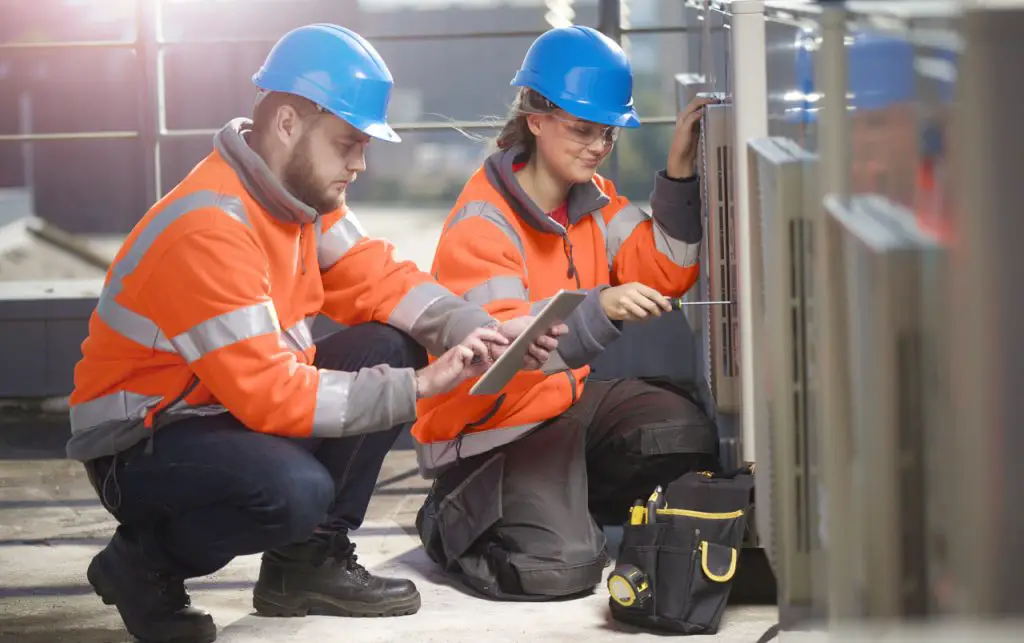
HVAC technicians play an essential part in keeping offices, homes as well as other buildings well-conditioned and in ensuring proper working of HVAC, heating ventilation and air and heating systems to ensure the health and safety of the occupants.
What does an HVAC Technician do?
In regulating temperatures as well as controlling levels of humidity and eliminating pollutants become an hvac technician are able to contribute to the health and comfort of the occupants of residential and commercial buildings, residential as well as industrial environments.
Duties and Responsibilities
The responsibilities and duties of HVAC technicians are different based on the job’s specific requirements or industry and the employers.
Here are a few typical tasks and responsibilities that come to the job:
Maintenance and Installation:
HVAC technicians are responsible of installing and maintaining heating, cooling and ventilation equipment.
This involves installing HVAC equipment such as heating ventilation and air conditioning technician, furnaces heat pumps and ductwork.
They can also carry out routine maintenance jobs, like changing or cleaning filters, examining components, as well as ensuring that the system is operating properly.
Repairs and troubleshooting systems HVAC technicians identify and fix hvac tech problems with the HVAC system.
They employ equipment and strategies to find issues, like faulty wiring, failing motors, or even leaks of refrigerant. Then they perform repairs or replace defective components in order to restore functioning of the system.
Test and Evaluation of Systems:
HVAC technicians conduct tests and assessments to make sure that hvac tech systems are running efficiently and are in line with the performance requirements.
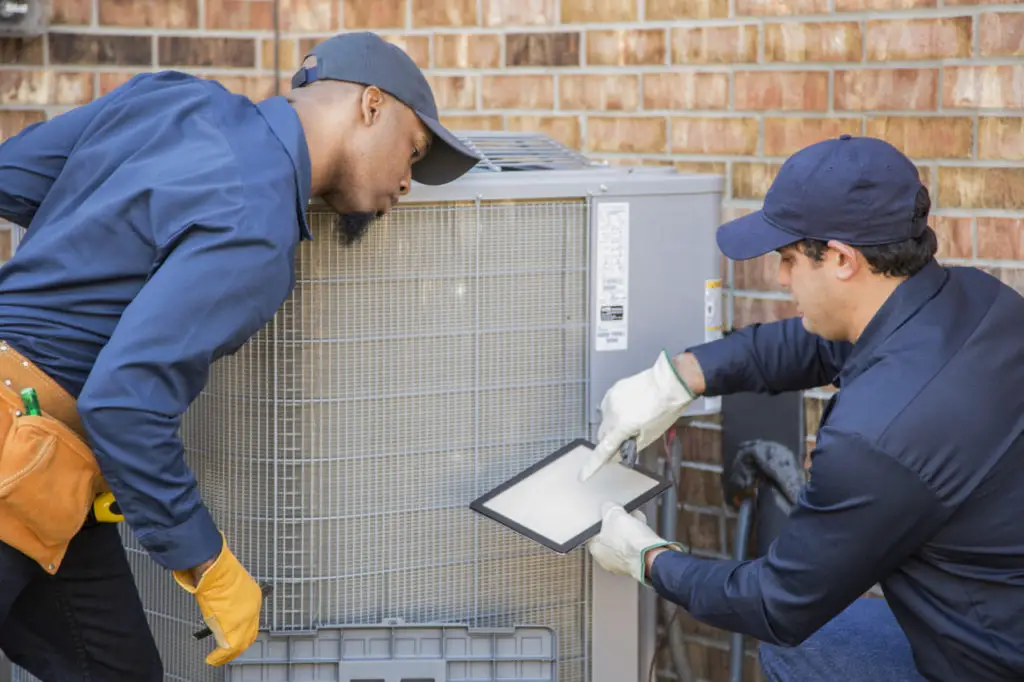
They can analyze airflow, test the levels of humidity and temperature, and evaluate energy usage. Based on the results they can make changes or suggestions to improve efficiency of the system.
Refrigerant handling as well as Compliance:
HVAC technicians work in the field of refrigerants like Freon or Puron that require appropriate disposal and handling according to Environmental regulations.
They should be aware of EPA rules and guidelines regarding the handling of refrigerants, storage as well as leak-detection.
HVAC technicians could also be in charge of keeping precise information on the usage of refrigerant as well as its the disposal of refrigerant.
Communications and Customer
Service HVAC technicians are often in contact with clients, providing information about problems with their system, options for repair and recommendations for maintenance.
They should have strong communications and customer service abilities to communicate technical details to their customers in a simple and comprehensible manner.
They could also give advice regarding energy efficient practices or system utilization, as well as solutions to problems.
Conformity with Codes and Regulations:
hire hvac technicians are required to follow the building codes, safety guidelines and regulations of the industry while installing, repairing or servicing hvac tech equipment.
This means following plumbing and electrical regulations, as well as ensuring adequate heating ventilation and air, and adhering to the environmental laws pertaining to emissions from refrigerants as well as emission.
Continuous learning and training:
HVAC technology is constantly changing, which means that hire hvac technicians should keep up-to-date with current technological advancements, industry trends and rules.
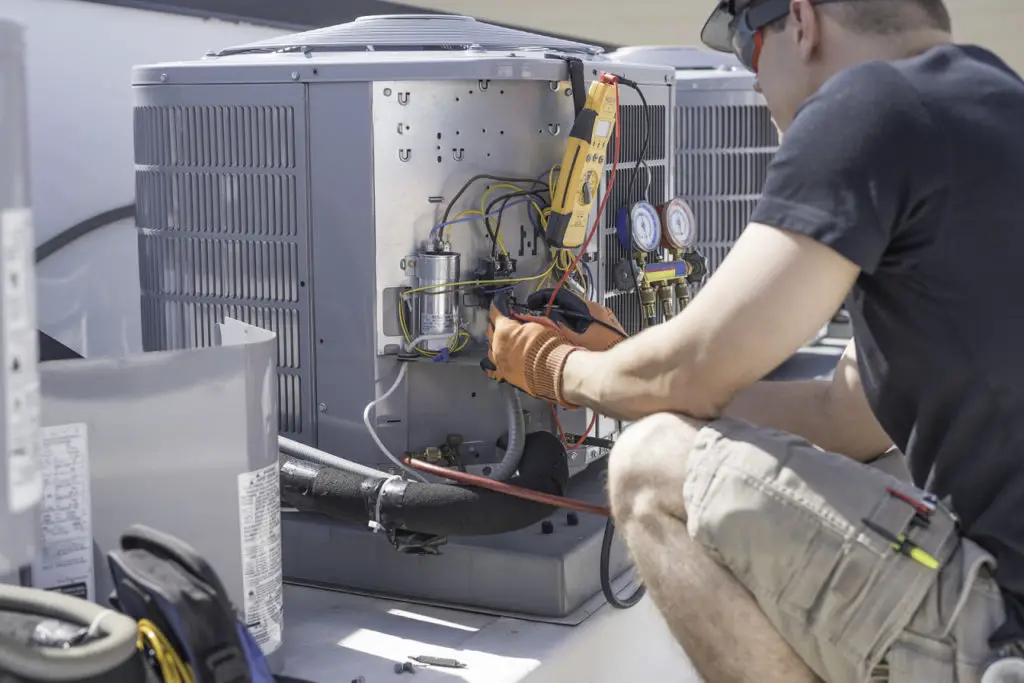
They can attend training classes and seminars or attend seminars to improve their knowledge and learn about the latest equipment as well as stay up to date regarding the most effective practices in the industry.
Types of HVAC Technicians
There are many kinds of become an hvac technician jobs and technicians that specialize in distinct areas of the HVAC, heating, and air conditioning contractors industry.
These are the most common kinds of hvac certifications technicians:
- Residential HVAC Technicians: They are experts in residential hvac systems for residential homes that focus with cooling and heating systems that are installed in apartments and homes. They have a thorough understanding of home HVAC units, vents, and the controls that are typically used in residential environments.
- Commercial HVAC Technicians HVAC technicians from commercial companies are focused on the larger HVAC systems used in commercial facilities including offices, retail stores hotel, hospitals, and hotels. They typically work with more sophisticated systems, such as the rooftop unit, chillers boilers, as well as central control systems.
- Technicians for Industrial HVAC HVAC technicians from the industrial sector are employed in industrial environments including factories, manufacturing facilities, or warehouses. They are responsible for specialized HVAC systems specifically designed to handle industrial processes. These could involve massive-scale cooling, ventilation or cooling system for process.
- HVAC Installation: HVAC Installers specialize in installing hvac certifications equipment. They are in close contact with contractors, builders or project managers to make sure that the installation is done correctly and properly setup of HVAC units. Installers can handle jobs including connecting ductwork fixing units and making sure the proper electrical connection.
- HVAC Maintenance Technicians Technicians in maintenance focus on regular maintenance and inspections for HVAC equipment. They carry out regular system inspections and clean or replace the filters,lubricate and grease moving parts as well as troubleshoot small issues. The aim is to stop breakdowns, boost the efficiency of energy, and increase the life of HVAC units.
- HVAC Service Technicians Service technicians attend to customer service requests and perform repairs on HVAC equipment. They can identify issues with the system to resolve issues, as well as carry out repair or replacement of defective parts. Technicians for service require the ability to diagnose and solve problems to pinpoint and solve issues with the system.
- Controls Technicians as well as Building Automation They specialize on HVAC controls systems, as well as building automation. They use sensor-controlled thermostats and thermostats that can be programmed and control panels that optimize HVAC system efficiency, control consumption of energy and to ensure the proper control of humidity and temperature inside buildings.
- Specialists in Energy Efficiency Specialized in Energy Efficiency on improving energy efficiency within HVAC systems. They assess energy usage and recommend measures to save energy as well as perform energy audits in order to find potential opportunities to improve efficiency. They also offer advice on how to use renewable energy sources, or on energy management system.
Hvac Career Pros And Cons
“HVAC techs jobs have plenty to offer anyone seeking a demanding and fulfilling job.
But, it’s crucial to understand the possible drawbacks which you need to be aware of prior to deciding to go after a career as an HVAC technician or pursue a career in the field.
Pros Of An Hvac Career
- HVAC technician career paths are financially rewarding. HVAC Technicians can get a high salary and have the opportunity to advance their careers. Based on Mint Intuit that the median annual salary for HVAC technicians is $51,000 in Indiana.
- HVAC careers offer many benefits and satisfaction. HVAC Technicians help individuals keep their homes as well as companies comfortable. They are proud of their job. HVAC is always a sought-after career choice for homeowners as well as commercial needs.
- HVAC jobs offer the chance to utilize the latest technologies. HVAC technicians work with many of the most sophisticated tools available, and are kept up to date with the most recent advancements in their area. This is ideal for those with a mind that is always looking for ways to solve problems.
Cons Of An Hvac Career
- HVAC professions may be physically difficult. HVAC Technicians often require lifting heavy machines, use ladders and operate in cramped areas.
- HVAC careers are challenging. HVAC Technicians usually must meet tight deadlines and have to deal with demanding clients. It is essential to have flexible schedules for technicians.
- There are a variety of security risks. Techs are exposed to various chemicals, restricted areas to move around through, and temperatures that vary.
How Long Does it Take to Become an HVAC Technician?
Some states need states to have an HVAC and air conditioning systems technician’s license.
But the present method of HVAC techniques has become complicated and numerous become an licensed hvac technician employers may still require a qualification to contemplate being an apprentice.
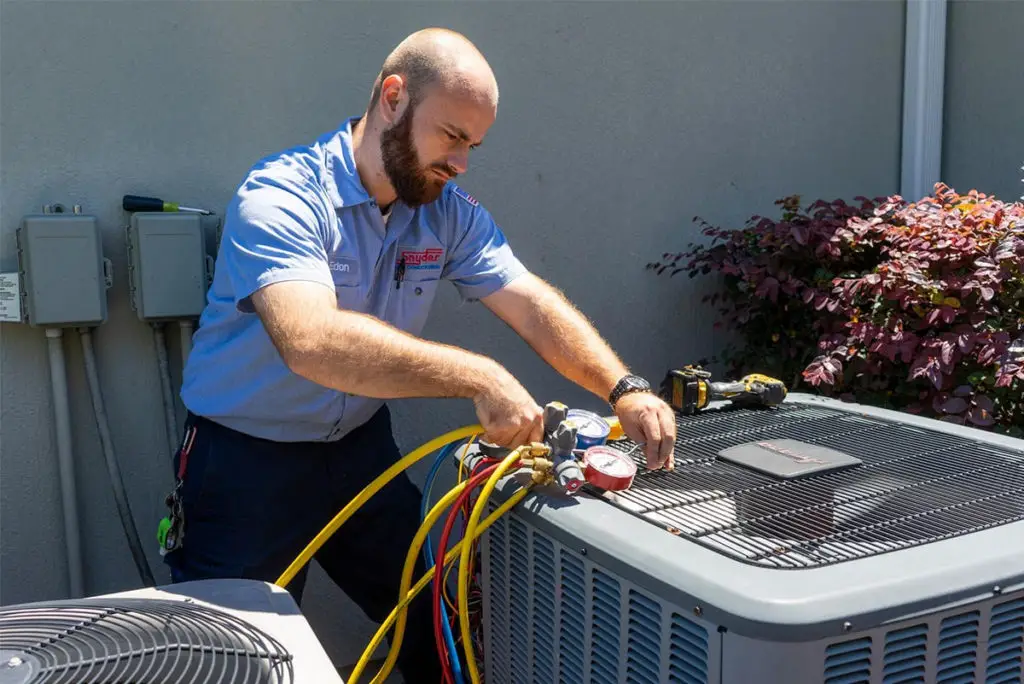
Hvac training program and cooling classes in several FCC colleges can be found across a variety of areas. the diploma can be awarded in a relatively short period which is about 10 months.
How Long Does the HVAC Technician Training Program Take to Complete?
HVAC Technicians’ training through Florida Career College can be finished and receive the certificate within 10 months.
The goal is to prepare students to be HVAC sales engineers hire hvac training program who market and maintain residential HVAC appliances and HVAC systems.
This course aims at training students to become HVAC technicians specialist in air conditioning systems and Maintenance technicians, technicians for HVAC HVAC specialists, and refrigeration systems mechanics.
Do I Need a College Degree to Become an HVAC Technician?
The answers might help many: No, college certificates aren’t required to be technicians.
The college diploma can give an excellent education however, for the HVAC industry, the practical aspects can be more crucial than formal education.
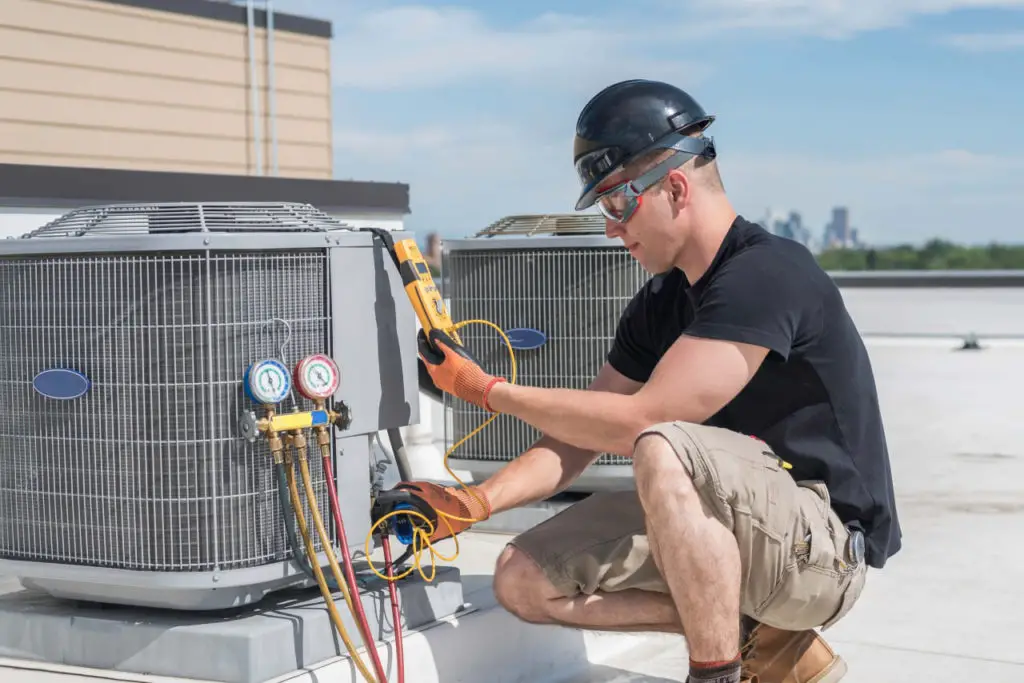
They can explore careers in the the HVAC field and industry without needing to learn for a degree. In lieu of college degrees, there are other routes to careers for HVAC specialists.
Technical and vocational colleges provide specialization in maintaining hvac systems. The possibility of apprenticeships is looked at. The topic will be covered further in the article.
What Does a Day in the Life of an HVAC Technician Look Like?
In general, the become an hvac training program will have a distinct task every day.
Some days are filled with small repair work on apartment buildings and homes, other days may include the complete installation of a complete HVAC system or maintenance for bigger commercial properties.
With regards to the HVAC tech technology, monotony is not an problem. Professionals who are reliable in their work can be flexible and are capable of working through complex problems regardless of the size their work is.
Flexible working hours are often required because clients or work demands may keep a technician on the go in the evenings and on weekends. Read the detailed guide on How does starting a job change a person’s lifestyle.
The typical days of hvac techs typically begin early in the day.
FAQ
What are the main responsibilities of an HVAC technician?
HVAC are experienced in the installation of air conditioners and in repairing the units.
They’re responsible for detection or fixing of problems related to maintenance, providing warranties and doing repairs for specific component of the equipment.
Is HVAC a good career choice?
The HVAC certificate offers numerous technical skills and career options in addition to a respectable income. But, you must be aware of how busy and difficult this field of work can be. A good hvac techs work can leave you feeling satisfied.
How hard is HVAC math?
Yeah. become an licensed hvac technician need an excellent knowledge of basic mathematics such as addition, subtraction, multiplying and division. It is usually required by engineering to learn advanced equations. However, hvac techs technicians usually use formulas like the Ohm law to diagnose electrical problems in cooling systems.







